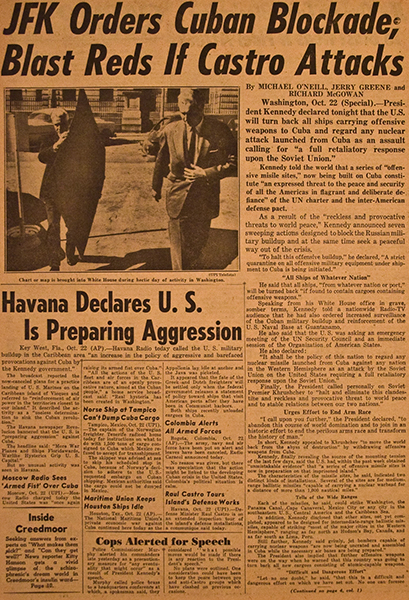latin america
El futuro del 'socialismo del siglo XXI' tras las elecciones

[In English at Venezuela: The future of ‘21st century socialism’ after Chavez's victory.]
Por Federico Fuentes, traducido para
La reelección del presidente venezolano Hugo Chávez el pasado 7 de octubre con más del 55 % de los votos fue vital por dos razones.
En primer lugar, el pueblo venezolano impidió el retorno de la derecha neoliberal al poder. De haber ganado ésta, hubiera intentado dado marcha atrás, con el apoyo de Estados Unidos, a los importantes avances conseguidos por la mayoría pobre desde el primer triunfo de Chávez en 1998. Entre estas mejoras se incluye un enorme aumento de los servicios básicos prestados por el gobierno (como educación, sanidad y vivienda), la nacionalización de sectores estratégicos anteriormente privatizados y la promoción de la participación popular en las comunidades y lugares de trabajo.
Venezuela: Michael Lebowitz on what we can expect from Chavez's fourth term
Michael Lebowitz in Zagreb. Photo by Jovica Drobnjak.
Click HERE for more articles by or about Michael Lebowitz.
Click HERE for more coverage and analysis of the Venezuelan revolutionary process.
November 1, 2012 – Links International Journal of Socialist Renewal – The following interview with Michael Lebowitz was recently published in Novosti, a left-wing newspaper in Zagreb, Croatia.
Venezuela: Hugo Chavez's six-year plan for the Bolivarian Revolution

October 31, 2012 -- Links International Journal of Socialist Renewal -- The following document is the political platform on which Hugo Chavez successfully sought re-election as the president of Venezuela. It was released in Spanish in June 2012. English translation courtesy of the Embassy of the Bolivarian Republic of Venezuela, Canberra, Australia.
Proposal of the Candidate of the
Homeland,
Commander Hugo Chávez,
for the Socialist Bolivarian Government, 2013–2019
INTRODUCTION
I
Venezuela: The future of ‘21st century socialism’ after Chavez's victory

Supporters celebrate the president's re-election on October 7 outside the Miraflores presidential palace in Caracas. Photo by Tamara Pearson/Venezuelanalysis.com.
Click HERE for more coverage and analysis of the Venezuelan revolutionary process.
By Federico Fuentes
[En espanol @ http://links.org.au/node/3085]
October 28, 2012 -- Green Left Weekly -- Venezuela's President Hugo Chavez’s re-election on October 7 with more than 55% of the vote was vital for two reasons. First, the Venezuelan people blocked the return to power of the neoliberal right. Had they won, these US-backed forces would have worked to roll back important advances for the poor majority won since Chavez was first elected in 1998.
These include a huge expansion in government providing basic services (such as education, health and housing), the nationalisation of previous privatised strategic industries, and the promotion of popular participation in communities and workplaces.
Cuba: The legacy of the October 1962 Missile Crisis

By Ike Nahem
Venezuela: Eyewitness impressions of the Bolivarian revolution
October 25, 2012 – Green
Grassroots interviews from Venezuela: Developing the power of the community

Ana Marin talks about her revolutionary activity.
Is Venezuela a 'one off'? A response to Richard Seymour's must-read analysis

Gregory Wilpert on Venezuela: 'Major challenges face Chavez in new term'
Click HERE for more coverage and analysis of the Venezuelan revolutionary process.
October 9, 2012 -- Real News Network -- Gregory Wilpert, a German-American sociologist, earned a PhD in sociology from Brandeis University in 1994. Between 2000 and 2008 he lived in Venezuela, where he taught at the Central University of Venezuela and then worked as a freelance journalist, writing on Venezuelan politics for a wide range of publications. He founded Venezuelanalysis.com, an English-langugage website. In 2007, he published the book Changing Venezuela by Taking Power: The History and Policies of the Chavez Government (Verso Books). He moved back to the US in 2008 because his wife was named consul general of Venezuela in New York. Since returning to the US he has been working as an adjunct professor of political science at Brooklyn College.
* * *
Paul Jay, senior editor, Real News Network: On Sunday night, President Hugo Chávez of Venezuela was reelected. Now joining us from New York City to talk about his views on the election is Gregory Wilpert. Thanks very much for joining us, Greg.


